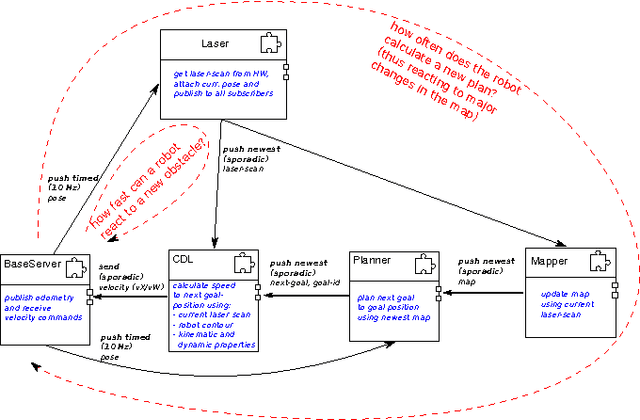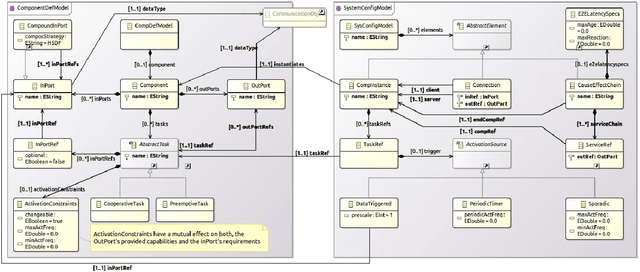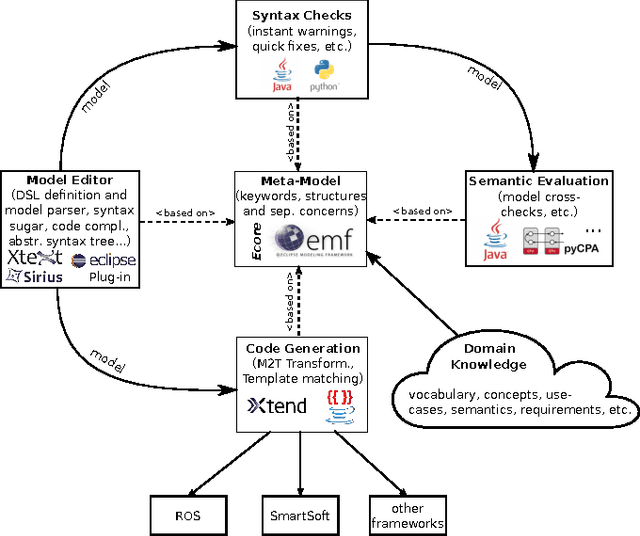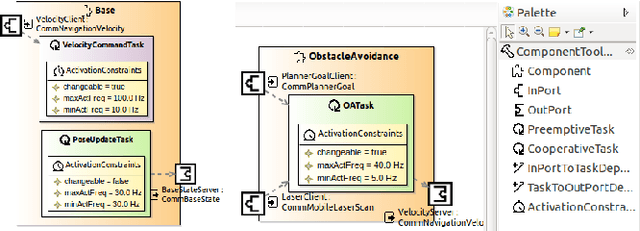Modeling Non-Functional Application Domain Constraints for Component-Based Robotics Software Systems
Paper and Code
Jan 11, 2016



Service robots are complex, heterogeneous, software intensive systems built from components. Recent robotics research trends mainly address isolated capabilities on functional level. Non-functional properties, such as responsiveness or deterministic behavior, are addressed only in isolation (if at all). We argue that handling such non-functional properties on system level is a crucial next step. We claim that precise control over application-specific, dynamic execution and interaction behavior of functional components -- i.e. clear computation and communication semantics on model level without hidden code-defined parts -- is a key ingredient thereto. In this paper, we propose modeling concepts for these semantics, and present a meta-model which (i) enables component developers to implement component functionalities without presuming application-specific, system-level attributes, and (ii) enables system integrators to reason about causal dependencies between components as well as system-level data-flow characteristics. This allows to control data-propagation semantics and system properties such as end-to-end latencies during system integration without breaking component encapsulation.
 Add to Chrome
Add to Chrome Add to Firefox
Add to Firefox Add to Edge
Add to Edge